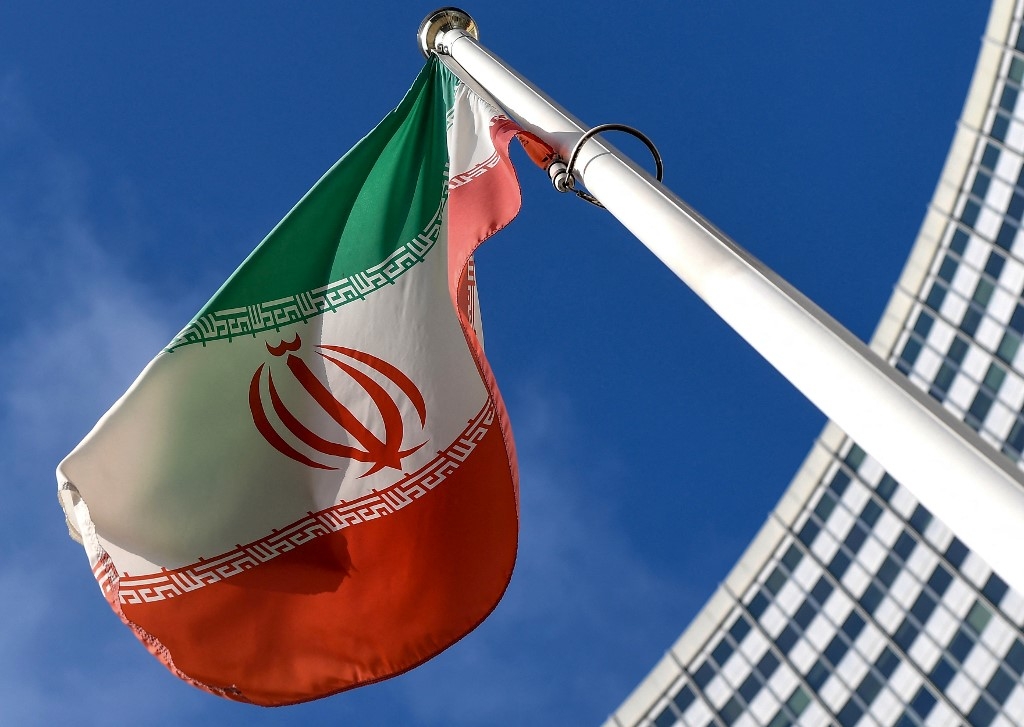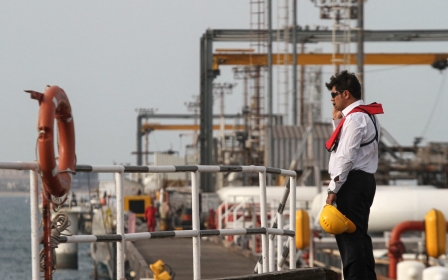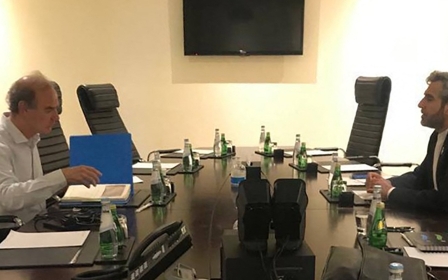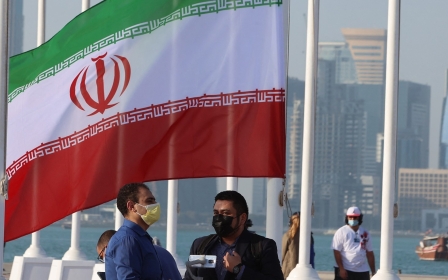British foreign office denies UK diplomat detained in Iran

The UK Foreign Office late on Wednesday denied Iranian state TV reports that Iran's Revolutionary Guards had detained the UK's deputy ambassador and several foreigners on claims of spying, calling the reports "completely false", Reuters has reported.
State TV aired footage that it claimed was of Giles Whitaker and his family in central Iran, with the British diplomat appearing to be taking ground samples.
"These spies were taking earth samples in Iran's central desert where the Revolutionary Guards' aerospace missile exercises were conducted," state TV said.
"Whitaker was expelled from [the area] after apologising," the report added.
One of those reportedly detained was identified by state TV as the husband of Austria's cultural attache in Iran. It also showed a picture of a third foreigner, identifying him as Maciej Walczak, a university professor in Poland whom it said was visiting Iran as a tourist.
New MEE newsletter: Jerusalem Dispatch
Sign up to get the latest insights and analysis on Israel-Palestine, alongside Turkey Unpacked and other MEE newsletters
The TV report ran footage allegedly showing Walczak and three colleagues collecting earth samples in another area after visiting Iran on a scientific exchange programme. It said their sample collection also coincided with a missile test in Iran's southern Kerman province.
The report claimed Israel had sent the trio to Iran in order to "steal" information from the Islamic Republic.
The IRGC has arrested dozens of dual nationals and foreigners in recent years, mostly on espionage and security-related charges.
Earlier this year, British-Iranian charity worker Nazanin Zaghari-Ratcliffe was released after spending nearly six years in detention after being convicted of plotting to overthrow the government.
Zaghari-Ratcliffe finally returned home in March along with a fellow dual national, after the UK agreed to pay a longstanding debt to Iran.
Shortly before the 1979 Iranian revolution that overthrew Shah Mohammad Reza Pahlavi, the British government agreed to sell more than 1,500 Chieftain battle tanks and 250 repair vehicles to Iran.
Iran paid £600m ($795m) for the tanks in advance, but having delivered only 185 tanks, Britain refused to deliver the remaining equipment when the shah was deposed.
The international court of arbitration in The Hague ordered Britain to pay the debt in 2001, a ruling upheld in 2009.
However, the two governments were locked in a prolonged legal battle in the British courts over the exact sum owed and whether or not the UK should pay interest on it.
Rights groups have repeatedly accused the Islamic Republic of trying to win concessions from other countries through arrests on trumped up security charges. Tehran denies arresting people for political reasons.
Middle East Eye delivers independent and unrivalled coverage and analysis of the Middle East, North Africa and beyond. To learn more about republishing this content and the associated fees, please fill out this form. More about MEE can be found here.




